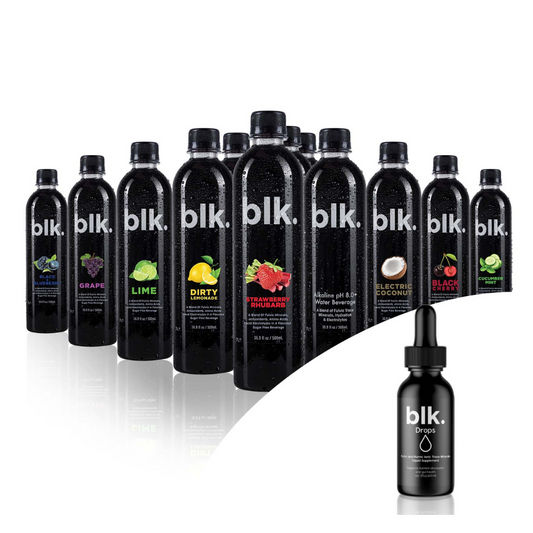
Mental Skills for Sports Performance
This Article Elaborates On The Following:
- The importance of mental skills for sports performance
- The critical mental skills to apply for enhanced sports performance
- The place of goal setting in facilitating focus and concentration on and off the field
Enhanced performance in sports requires amalgamating physical attributes and mental skills. Whether you are a high school athlete or a professional sportsperson, you need to condition your mind to improve your performance. Failure to work on your mentality could have an extensive effect on you both on and off the field.
Understanding Mental Skills For Sports Performance
Definition of Sports Performance
Before discussing what mental skills you need for sports performance, we must identify what metrics indicate optimum performance. Generally, a well-performing athlete has excellent sports skills, endurance, strength, and recovery qualities. While these may appear to involve only the physical aspects of the body, researchers have noted a correlation between athletic performance and mental skills.
6 Key Mental Skills For Sports Performance
Six mental skills you need to optimize your sports performance include:
- SMART goal setting
- Focus and Concentration
- Imagery and Visualization
- Self-Talk
- Emotional Regulation
- Performance Analysis
#1 Goal Setting and Planning For Sports Performance
Importance of SMART Goals
Athletic performance focuses on both the short-term and long-term success of an athlete. To be effective as an athlete, you must set goals to guide both your short-term and long-term success. Simply stating that you want to achieve something will not be enough. You must set Specific, Measurable, Attainable, Realistic, and Time-Bound (SMART) goals for optimum sports performance.
Setting Up And Monitoring Training Plans
Aside from defining your SMART goals, set up a training plan that reflects your goals and periodically evaluate the measurable metrics of performance to see whether the training plan works as intended. Using the training plan and SMART goals, you will be a step closer to long-term success.
#2 Focus and Concentration On Sports Performance
Importance of Focus During Training and Competitions
As a sportsperson, you must avoid distractions that impede your effectiveness on and off the field. Focus and concentration are paramount for optimum sports performance, especially at the high school level.
How To Stay Focused
Some of the ways you can increase your focus and concentration in sports are as follows:
- Keep your eye on the goal and condition your mind to always work towards a set objective.
- Remove distractions by evaluating impediments to your athletic performance and curbing them as soon as you identify them.
- Work to improve yourself constantly.
- Avoid negative thoughts.
#3 Imagery and Visualization For Sports Performance
Improving Sports Performance Through Imagery and Visualization
Have you ever heard the saying: seeing is believing? Anytime you see anything or visualize any eventuality in your mind, you are more likely to believe it and attain it. Visualization is an important skill for athletes to rehearse desired outcomes before manifesting them on the field or track. Studies on the mental benefits of visualization indicate that imagery and visualization stimulate the brain the same way an actual exercise would. In essence, this means that visualizing something is similar to doing it in reality.
How to Develop Key Imagery and Visualization Skills
You can incorporate visualization to improve sports performance in the following ways:
- Use images and visualization during training to prepare yourself for different outcomes.
- Develop strategies for high-pressure competitions by first playing them out in your mind.
- Incorporate positive self-talk in visualization when training and in actual competitions.
#4 Self-Talk For Sports Performance
Negative thoughts and discouragements are a sure way to decrease your sports performance. Engaging in positive self-talk builds your confidence and resilience, increasing your effectiveness on and off the field. When engaging in positive self-talk, address yourself as another person, using second-person pronouns. As studies indicate, using second-person pronouns when engaging in positive affirmations will improve your performance and endurance in the long term.
#5 Emotional Regulation For Sports Performance
Sports are very emotive for the athletes, coaches, and fans. Knowing how to control your emotions can help you navigate your sports effectively and help you avoid the nerves that come with playing sports. Studies indicate that mood and emotions have a bearing on the likelihood of injuries in intense sports.
Essential Emotional Regulation Strategies To Have
Some of the emotional regulation strategies you can employ include:
- Relaxation and mental preparation techniques include breathing exercises, yoga, and mindfulness.
- Maintaining emotional control during competition through mindfulness and cognitive reframing techniques.
- Using emotional regulation to enhance mental toughness and resilience.
#6 Performance Analysis For Sports Performance
As mentioned above, you need measurable goals to evaluate your progress over time when starting any sport. Regularly analyzing your performance helps you identify and address issues affecting your performance in advance. You can use various performance analysis tools, such as charts and figures, individually and at the team level, to improve your athleticism. While figures are crucial in analyzing performance, do not underestimate the importance of feedback from your teammates and coaches in enhancing performance in sports.
Conclusion
Working on your mental skills as a sportsperson puts you a step closer to being an expert in the sport and increasing your performance. As soon as you gain mastery over your mind, both on and off the field, you will be in a better position to increase your performance in the sport you play. Focus on the mental skills discussed above and watch your performance increase exponentially.
Frequently Asked Questions
-
What are some techniques for maintaining focus and concentration during competition?
-
How can emotional regulation help improve sports performance?
-
What is the role of performance analysis in sports performance?
-
Can mental training help me overcome pre-competition nerves?
-
What are some strategies for managing stress and pressure during competition?




